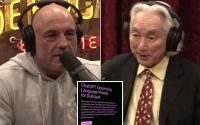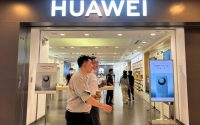Tesla recalling 363K cars with self-driving beta software
Tesla is recalling about 363,000 cars equipped with the beta version of its Full Self-Driving technology due to a crash risk, the federal government announced on Thursday.
The National Highway Traffic Safety Administration said the software enables the vehicle to “exceed speed limits or travel through intersections in an unlawful or unpredictable manner [which] increases the risk of a crash.”
Tesla responded that it would release a free software update. The company added that it was not aware of any injuries or deaths related to the recall.
Musk took to Twitter to deny that what Tesla was doing amounted to a recall.
“The word ‘recall’ for an over-the-air software update is anachronistic and just flat wrong!” Musk tweeted.
The recall covers 2016-2023 Model S, Model X, 2017-2023 Model 3, and 2020-2023 Model Y vehicles equipped with FSD Beta software or pending installation.
“The feature could potentially infringe upon local traffic laws or customs while executing certain driving maneuvers,” NHTSA said.

Possible situations where the problem could occur include traveling or turning through certain intersections during a yellow traffic light and making a lane change out of certain turn-only lanes to continue traveling straight.
NHTSA said “the system may respond insufficiently to changes in posted speed limits or not adequately account for the driver’s adjustment of the vehicle’s speed to exceed posted speed limits.”
Last year, Tesla recalled nearly 54,000 vehicles with FSD Beta software that may allow some models to conduct “rolling stops” and not come to a complete stop at some intersections, posing a safety risk.

Tesla and NHTSA say FSD’s advanced driving features do not make the cars autonomous and require drivers to pay attention.
The recall comes just days after a California-based tech mogul spent millions of dollars for a Super Bowl commercial warning of the alleged perils of Tesla’s self-driving software.
Dan O’Dowd, a billionaire who ran for the US Senate seat from California on a single-issue plank of attack Elon Musk and his electric car company, paid for the 30-second ad in which Tesla vehicles are seen crashing into child-sized mannequins.
One segment of the commercial shows a Tesla driving past a school bus and running over strollers in a parking lot.
“Tesla’s Full Self-Driving is endangering the public,” the narrator of the commercial says.
O’Dowd has spearheaded a public campaign lobbying lawmakers in California to bar FSD-equipped cars.
Tesla has not publicly commented on the Super Bowl ad. Musk has called O’Dowd “crazy.” In a tweet, he included a bat and poop emojis, as if to say the mogul was “bat-s–t crazy.”
Last August, Tesla sent O’Dowd a cease-and-desist letter after his group posted a video alleging that the FSD software posed a danger to children. O’Dowd refused.


Tesla faces lawsuits and regulatory scrutiny over its driver assistance systems.
The Department of Justice began a criminal investigation into Tesla’s claims that its electric vehicles can drive themselves in 2021, after a number of crashes, some of them fatal, involving Autopilot, Reuters has reported.
The New York Times reported in 2021 that Tesla engineers had created the 2016 video to promote Autopilot without disclosing that the route had been mapped in advance or that a car had crashed in trying to complete the shoot, citing anonymous sources.
With Post Wires


